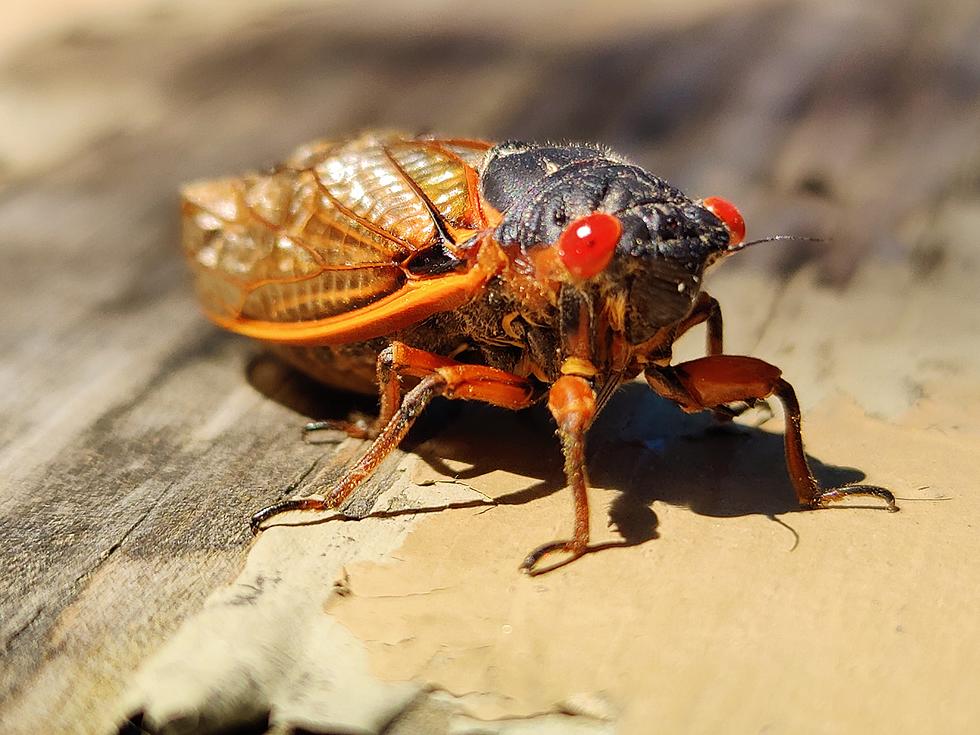
We Were Today Years When We Learned There Were Cicadas in Idaho
For about six weeks, Idaho sat back and laughed all of the bizarre headlines coming out states getting a visit from the 17-year Brood X cicadas.
As billions of cicadas reached maturity, they dug their way out of the ground and swarmed 15 states leading to headlines like "Man Crashes Car After a Cicada Hit Him in the Face," "Cicada Swam Broke the White House Press Plane, Delaying Trip By More Than Six Hours" and "Your Probably Shouldn't Eat Cicadas if You're Allergic to Shellfish."
As amused as you were, you were also super grateful that we didn't have these disgusting things in Idaho. They're gross. They're loud. They smell. And they leave so many carcasses behind that you often have to rake them up and mulch them. No one's got time for that! Yup, Idaho sure is lucky to be a cicada free zone.

Um. Well. We don't know how to tell you this...but Idaho isn't cicada free. In early June, someone who was either fascinated or terrified of cicadas submitted the question
"I keep hearing about the cicadas that are coming out of the ground after 17-years. What are they and will we have them here?"
to an "Ask an Idaho Scientist" webpage managed by the Idaho National Laboratory's Environmental Surveillance, Education and Research Program and Post Register Newspaper in Education. Ron Patterson from the U of I extension in Bonneville County took time to answer that question.
Listen to Michelle Heart mornings on 107.9 LITE-FM and download the free LITE-FM app.
In the Idaho related part his response, he noted that the 17-year Brood X cicadas and another 13-year periodical cicada are the ones that get the most attention but there are over 150 different species of cicadas in the United States and Canada. At least 21 of those species have been identified in Idaho.
They have much shorter life cycles and don't all emerge at the same time like the Brood X cicadas, so they're not big pests in the Gem State. They're definitely here though. Idaho Fish and Game lists the Okanagana napa cicada is present and native to Idaho.
So, there's a chance that the chirping you hear around dusk isn't crickets like you originally thought! It could be the mating call of Idaho's native cicadas...
...which are still gross (just look at these ones collected in Mountain Home), but we're happy their harmless and there aren't billions of them.
5 Adorable Animals That Are Legally Considered 'Pests' In Idaho
12 Pets You CANNOT Own in the City of Boise
How Many Of These 14 Animals Do You Remember Dissecting in an Idaho School?
More From 104.3 Wow Country









